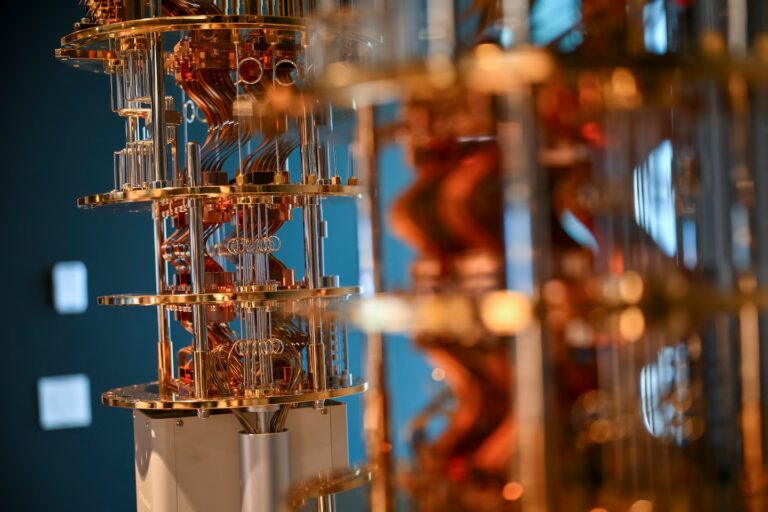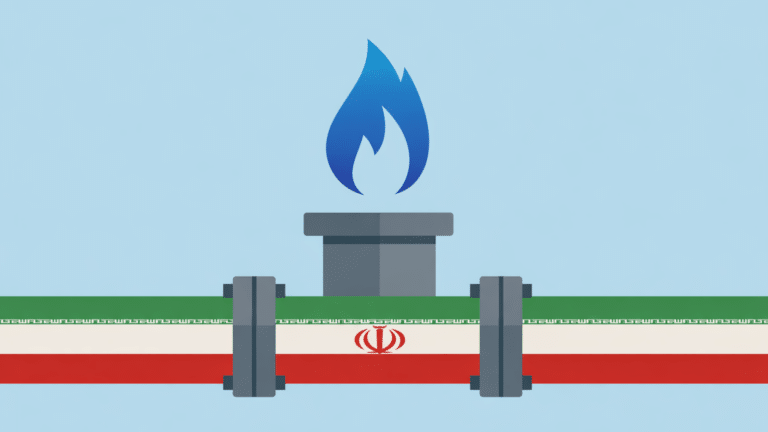This website uses cookies as well as similar tools and technologies to understand visitors’ experiences. By continuing to use this website, you consent to Columbia University’s usage of cookies and similar technologies, in accordance with the Columbia University Website Cookie Notice.
-
Transcript
-
Melissa Lott: [00:00:00] When you hear the phrase the big switch, what does it mean to you? [00:00:02][2.7]
Speaker 2: [00:00:04] Well, of course it’s a pun because a switch is how you turn electricity on and off. I think we tend to think of all we’re switching our power plants instead of those coal plants. Now we’re going to use wind and solar. But I really think we’re going to have to all switch ways in which we operate. [00:00:18][14.5]
Melissa Lott: [00:00:19] I’m Dr. Melissa Lott, and I’m the host of a new podcast from the Center on Global Energy Policy at Columbia University called The Big Switch. It’s a show about how to transform the energy systems around us to make them more sustainable and healthier for all of us. The people that they serve to slow climate change, we need to transform our buildings, our homes, cars and the economy as quickly as possible. But how do we do it right? [00:00:42][23.1]
Speaker 3: [00:00:45] What that means to me is redesigning not just our technological systems, but also our institutional systems to actually adapt to the fact that we are kind of playing on hard mode as climate change proceeds and also as we try to correct a lot of the inequities and environmental challenges of our previous systems. [00:01:01][16.2]
Melissa Lott: [00:01:02] I’m an engineer and researcher and I’ve spent my career traveling the world studying the most effective ways to build low carbon energy systems and talking to people about them. And in this series, I’m exploring how the energy transition will play out as we work to slow climate change. So when people say the energy transition, what do they mean? [00:01:18][16.3]
Speaker 4: [00:01:19] Their full text books on what this is? [00:01:22][3.6]
Melissa Lott: [00:01:23] And let’s go to the glossary. Yeah. You don’t have to be an energy expert to follow along in our first season, which is five episodes in all. We’re going to explore the backbone of the low carbon energy system, the power grid. Why is cleaning up the grid so vital to addressing climate change giving us lots of other benefits to our health and our economy in the process? [00:01:43][19.7]
Speaker 4: [00:01:43] Backbone is what makes the thing stand and gives it the basic stability and basic functional structure. [00:01:51][7.5]
Speaker 5: [00:01:52] So the electricity grid is the massive machine that powers our lives and we care because it gives us all of the things we want. [00:02:00][8.0]
Speaker 6: [00:02:00] The more we have electricity, the more addictive we become. And if you don’t believe you’re addicted, try taking a cell phone away from a 14 year old and you will see what electricity addiction looks like. They think it’s a phone addiction, but at the end of the day, it’s truly an electricity addiction. [00:02:15][14.5]
Speaker 4: [00:02:16] From that perspective, totally, the grid is backbone. The other way to think is you take away the backbone, you take away the grid, everything falls apart, and it fits even visually and figuratively, very, very, very well. [00:02:27][11.7]
Speaker 7: [00:02:28] So we are in this fantastic phase right now where we are capable to set a foundation for shaping demand. Right. And not see renewables as this variable thing to be scared of. [00:02:40][12.0]
Speaker 6: [00:02:40] I would say when I think of the grid of the future, I’m hopeful for one, that reduces the burden on marginalized and vulnerable communities and creates jobs not just for people that currently have them, but for anybody that wants them. [00:02:56][16.4]
Melissa Lott: [00:02:57] Our first season is coming out in June and it’s five parts. Each episode explores a different element of how the power grid works, how it’s changing, and how those changes can benefit society. Subscribe to the Big Switch today. You can find the show on Apple, Spotify, Google Podcasts, or any place where you listen to your podcasts. [00:03:15][18.1]
Speaker 2: [00:03:20] This isn’t just something that the elves somewhere are going to make happen, and we’ll say, Oh, isn’t this wonderful? We’re not putting out any carbon anymore, and I haven’t noticed a thing. It’s going to touch everyone’s life in some way because that’s what switches do. [00:03:20][0.0]
[184.4]
This week, we’re pleased to hand the microphone over to our colleague: Dr. Melissa Lott.
Melissa is the director of research here at the Columbia Center on Global Energy Policy. And for the last few months, she and her team have been working on a new podcast, called The Big Switch.
It’s a five-part series about how to clean up the energy system — told in a clear, understandable and fun way.
We are offering you the first episode of The Big Switch, right now. So I hope you’ll give it a listen and subscribe to the podcast on Apple, Spotify, and any other place you get podcasts.
More Episodes
The Battery Recycling Dilemma
So far over this season we've traced the global lithium-ion battery supply chain from mining to processing to manufacturing. And we've put it all into a geopolitical and economic context.

The Great Battery Manufacturing Race
China has been the world's biggest battery manufacturer for over a decade. By 2022, according to the IEA, China manufactured 76% of the world's batteries. But that's changing.

The High Stakes for Battery Ingredients
Batteries can replace gasoline in our cars, or diesel in our generators with electricity. But batteries and petroleum-based fuels share something in common: they both rely on energy-intensive processes to turn extracted materials into something useful.

The Mining Conundrum For Critical Minerals
To produce enough batteries to reach global net-zero goals, the International Energy Agency says we'll need to increase production of critical minerals by six fold by 2040. It's a monumental task.

Relevant
Publications
Where China Gets Its Oil: Crude Imports in 2025 Reveal Stockpiling and Changing Fortunes of Certain Suppliers, Including Those Sanctioned
China’s crude oil imports hit a record-high 11.6 million barrels per day in 2025, as geopolitical tensions, low oil prices, and global oversupply spurred China to increase its oil stockpiles, a trend likely to continue in 2026.


Iran’s Natural Gas Paradox: Vast Resources, Limited Export Capacity
Iran appears to be a natural gas giant, due to its large proved gas reserves and significant gas production and consumption.

More Efficient Use of Venezuela’s Natural Gas Could Strengthen the Region’s Energy Security and the Country’s Electricity Sector
Venezuela holds 70% of Latin America's natural gas reserves, which it could export to Colombia and Trinidad to increase revenues.


